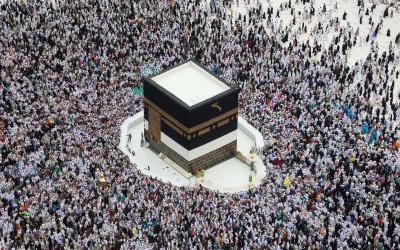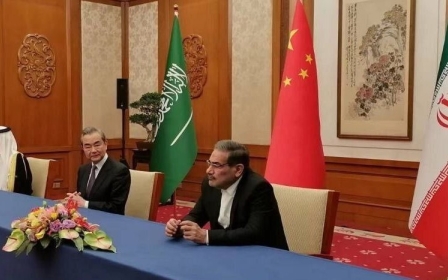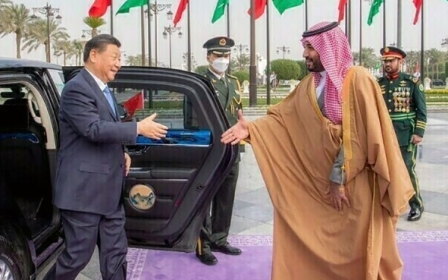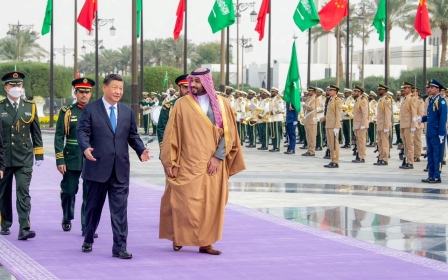Saudi Arabia and Iran agree to reopen embassies during new China meeting
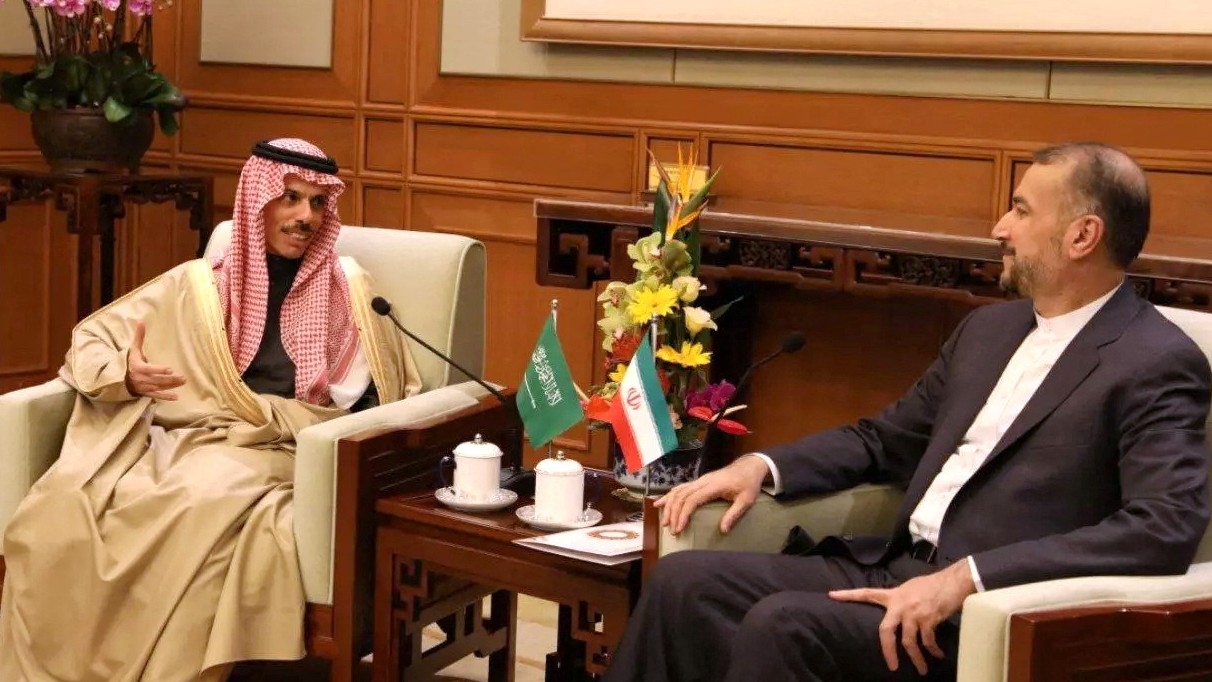
The foreign ministers of Saudi Arabia and Iran met in Beijing on Thursday for the first time in seven years following a rapprochement between the two sides mediated by China last month, and agreed to reopen embassies.
The meeting between Iran’s Hossein Amir-Abdollahian and Saudi Arabia’s Prince Faisal bin Farhan Al Saud is meant to build on last month's groundbreaking agreement which re-established diplomatic relations.
A joint statement said Riyadh and Tehran would reopen their embassies for each other within two months. The delegations also agreed to “expand” their bilateral talks to discuss “important issues”.
Video of the meeting released by the two sides showed the two ministers briefly shaking hands and posing for photos with their Chinese counterpart Qin Gang.
In the joint statement, the two sides agreed to resume flights and "facilitate" the issuing of visas for each other's citizens for private and bilateral visits.
New MEE newsletter: Jerusalem Dispatch
Sign up to get the latest insights and analysis on Israel-Palestine, alongside Turkey Unpacked and other MEE newsletters
Invitations for official visits were also offered. Iran has already confirmed it accepted an invitation for President Ebrahim Raisi to visit Riyadh.
On 10 March, Iran and Saudi Arabia agreed to restore ties and reopen diplomatic missions within two months of the agreement being signed.
Years of tension
The breakdown in relations between the two sides not only raised tensions in the Gulf but also saw the two sides engage in regional proxy wars against each other that deepened conflicts in Yemen and Syria.
Diplomatic relations between Riyadh and Tehran have been strained since Saudi Arabia's 2016 execution of Shia cleric Nimr al-Nimr, a critic of the Saudi monarchy, and dozens of his supporters. Attacks by Iranian protesters on the Saudi embassy in Tehran following the execution prompted Riyadh to cut diplomatic ties with Iran.
Tensions were also exacerbated by the deadly Saudi-led war on the Iran-aligned Houthi movement in Yemen since 2015 and the deaths of hundreds of Iranian Hajj pilgrims in a stampede in the same year.
As part of the agreement signed between the sides last month, both sides "emphasised the respect for the sovereignty and non-interference in the internal affairs of each other" and agreed to implement a security cooperation agreement signed in 2001.
The agreement was widely seen as a diplomatic victory for China in the Gulf, which the US considers to be its sphere of influence.
Middle East Eye delivers independent and unrivalled coverage and analysis of the Middle East, North Africa and beyond. To learn more about republishing this content and the associated fees, please fill out this form. More about MEE can be found here.


